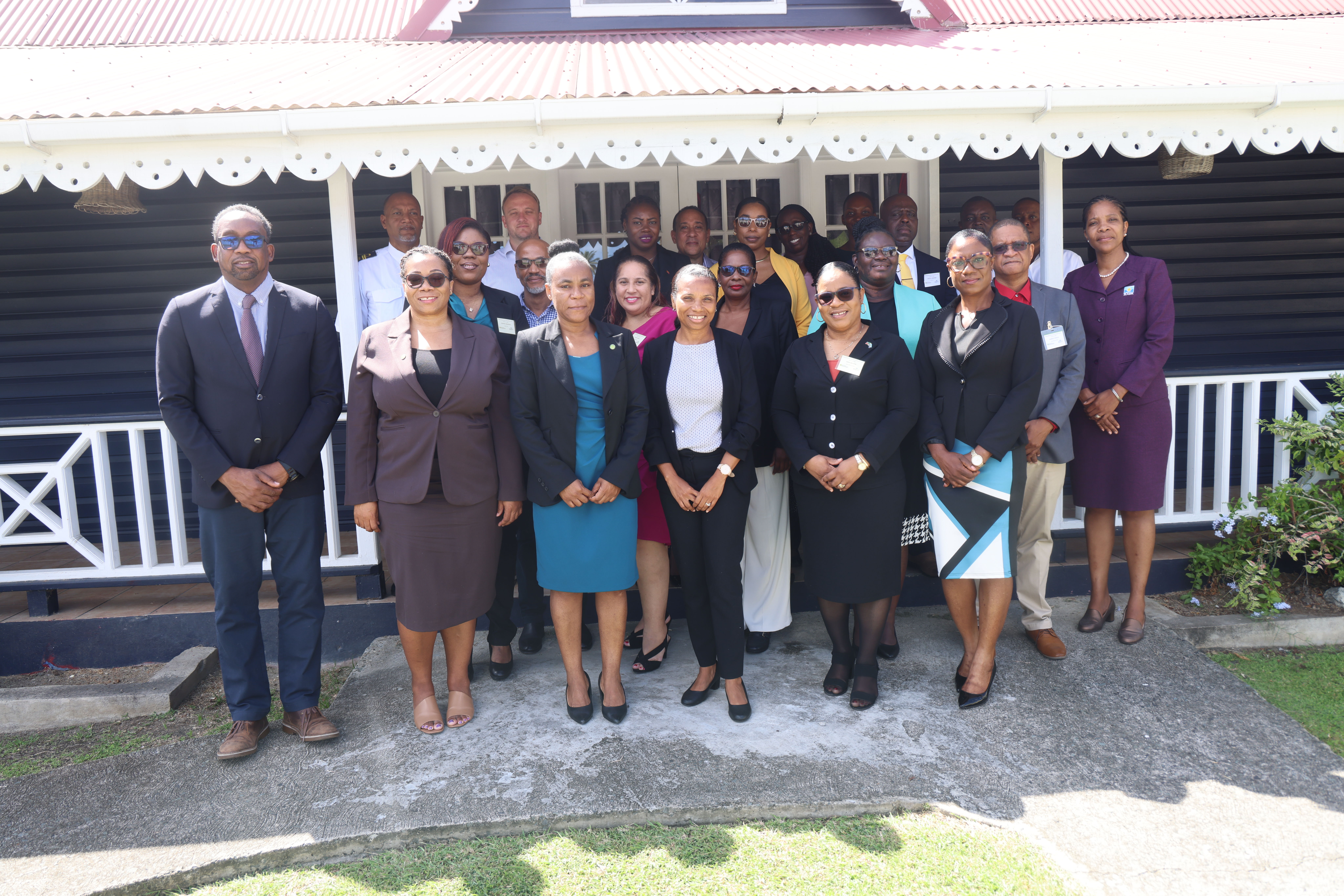OECS Convenes First Regional Working Group Meeting on Proposed Customs Union and Free Circulation of Goods Regime
OECS Press Release
The Organisation of Eastern Caribbean States (OECS) Commission convened the inaugural meeting of the Regional Working Group on the proposed Customs Union and Free Circulation of Goods (CU-FCG) regime, bringing together senior government officials, private sector representatives, and other regional stakeholders in a hybrid format in Castries and via videoconference.
The two-day meeting, held July 30–31, 2025, follows decisions taken by the OECS Economic Affairs Council and the Council of Ministers: Trade, earlier this year, which reaffirmed the commitment of Protocol Member States to operationalise the CU-FCG in accordance with the Revised Treaty of Basseterre.
The purpose of the meeting was to update the Roadmap and Implementation Timelines for the Customs Union, and to develop a conceptual framework for an early pilot implementation for the free circulation of goods. The goal is to advance the policy, legislative, regulatory, and institutional frameworks needed for a fully functional CU-FCG regime, creating a single customs territory for the OECS Economic Union.
In his opening remarks, Mr. Joel Richards, Officer-in-Charge of the Economic Affairs and Regional Integration Division of the OECS Commission, underscored the urgency and economic potential of the initiative:
"A customs union regime will foster free trade among our members, enhance competitiveness of our firms and our economies more broadly, and create jobs because we expect that there will be more economic benefits coming from the creation of a customs union regime. Such a regime would also be beneficial to the private sector since it would allow firms to expand their own economic activities, which would likely create those economies of scale which are critical to the competitiveness of the private sector. Certainly, increased trade volumes, expected from a CU-FCG regime, would hopefully lead to higher gross domestic product for our member states and create greater overall wealth for the collective."
Mr. Ricardo James, Head of Trade Policy Development, emphasized that the Regional Working Group will be instrumental in monitoring and reporting on the progress of implementation of the CU-FCG regime, while providing advice on the technical assistance and capacity-building needs that may arise. Participants included senior officials from Ministries of Trade and Finance, customs administrations, standards and quality agencies, plant and animal health and food safety authorities, port management bodies, the OECS Business Council, and observers from the Caribbean Community (CARICOM) Secretariat and the Caribbean Forum (CARIFORUM) Directorate.
The participants received a detailed overview and status of the implementation of the Customs Union and Free Circulation of Goods. They considered and provided feedback on the draft updated roadmap, implementation plan and timelines for completing the Customs Union and discussed proposals for the conceptual framework for a pilot phase for free circulation goods. The meeting agreed to continue and finalize the discussions at a second meeting planned for September. Recommendations from that meeting will be taken to the Council of Ministers, the Economic Affairs Council, and the OECS Authority, ensuring the necessary decisions are made for the timely implementation of the Customs Union and Free Circulation of Goods regime.





